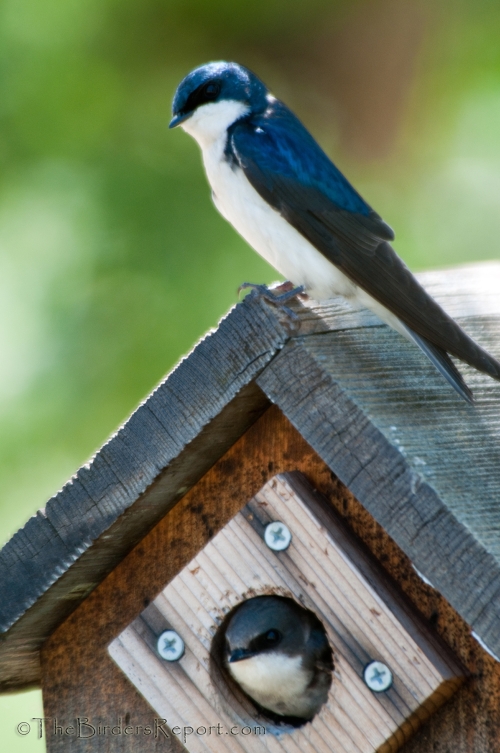
Tree Swallows (Tachycineta bicolor) photos by Larry Jordan
If you have nest boxes that accommodate Tree Swallows (Tachycineta bicolor), you are undoubtedly familiar with the photo above. Tree Swallows are commonly found on and around their nest site and often perch atop the birdhouse or on a nearby branch when nesting in a natural tree cavity.
They breed regularly throughout central and northern North America but their range is expanding southward as they take advantage of bluebird trails1. This is their range map courtesy of Birds of North America Online.
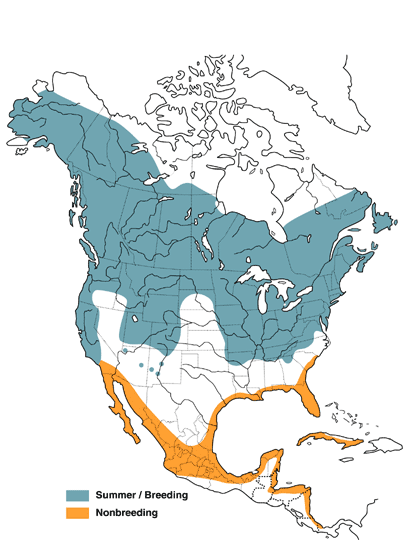
This male Tree Swallow was very cooperative, posing as I approached the nest box. Click on photos for full sized images.
He was stretching and spreading his wings for me.
Glancing down at his mate and showing off that iridescent steel blue…
as she was calmly peeking out the nest box entrance in her muted blue tones.
Tree Swallows are fierce defenders of their nest sites and will even dive bomb humans that approach too close. This, of course, is expected by trail monitors. The occupying pair of swallows will call in support from Tree Swallow neighbors and, all of a sudden, you may be surrounded on all sides by circling, diving birds like this one.
They chirp as they come in, strafing the would be intruder, which can be a bit intimidating.
Once you open the nest box, you will see what all the fuss is about. A beautiful feathered nest with smooth, white, unmarked eggs.
Incubated by the female for about two weeks brings the happy couple a treasure trove of little ones. These nestlings are about three days old.
A couple of weeks later, the nestlings have blossomed into fully feathered chicks, nearly ready to fledge when 16 to 24 days old.
Bird behavior is the most interesting aspect of bird watching for me. Being able to watch these aerial acrobats build their nests and raise their young occupies a very special place in my heart and in my life. I hope it does for you too.
A short distance from this nest box, I filmed another pair of Tree Swallows as the female checks out a natural tree cavity. If you listen carefully, at around the 42 second mark you can hear the male’s high pitched chirps as he guards the site from a limb a few feet away.
To see more great bird photography, check out World Bird Wednesday!
References: 1 Birds of North America Online

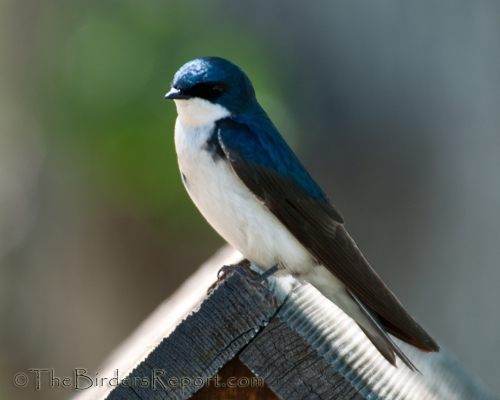
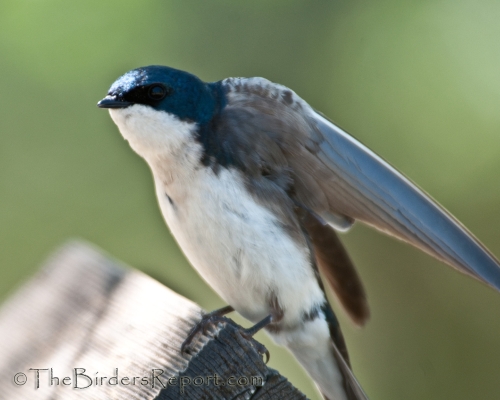
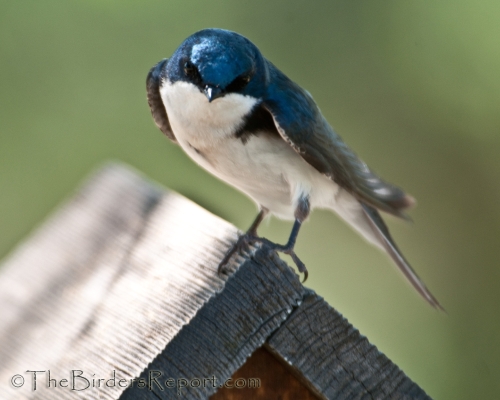
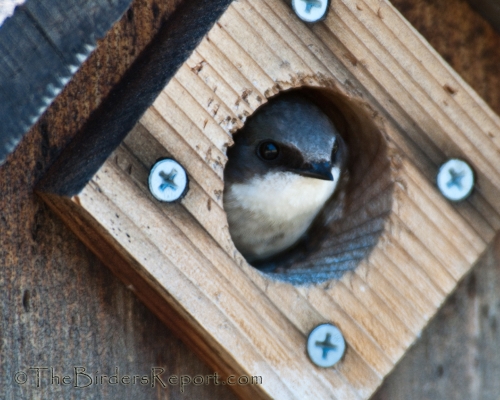
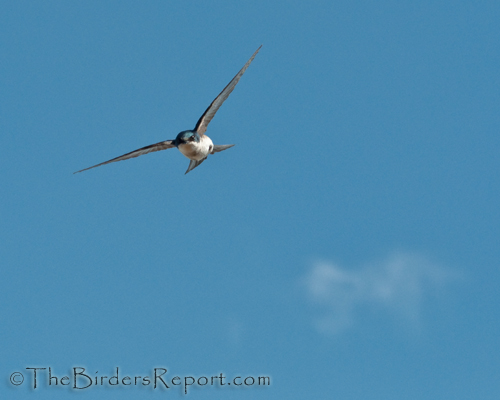
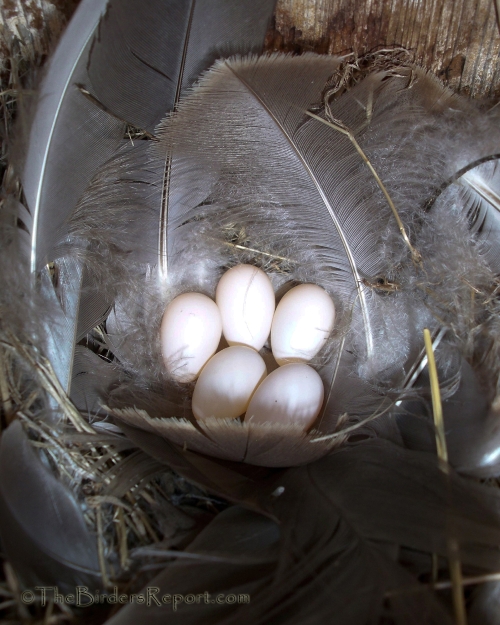
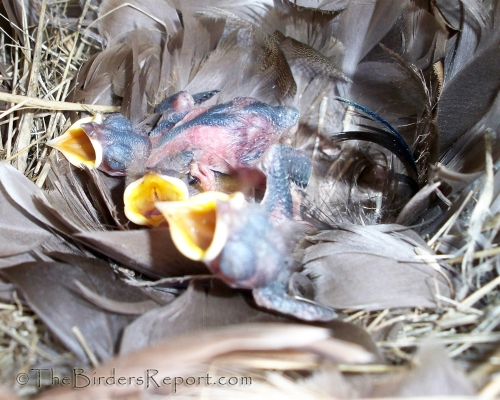
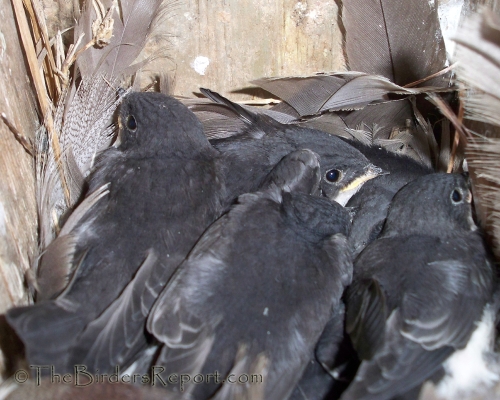








Comments on this entry are closed.
Great post, images and video Larry! I never tire of watching Swallows. They like coming to our cove an hour or two before low tide and snatch up bugs on the fly. They are wonderful acrobats!
I don’t think I’ve ever seen such a beautiful nest lined so softly with feathers! Such brilliant in flight shots of this lightening fast flier too!
The images of your wonderful birds are superb to see… a lovely post.
Beautiful photos – especially the eggs with the feathers surrounding them.
Fantastic pictures Larry. That nest interior looks so cosy.
Lovely photos of these beautiful birds! I was so impressed with the picture of the nest, so carefully lined with feathers and cupping those five perfect little eggs!
Loving the succession of these photos with their story,especially the nest so lovingly lined with their feathers to hold their babies.phyllis
wonderful spieces. Thanks for sharing their development.
Thank you so much for the beautiful pictures and the great information! Makes me a little ashamed of my feeble tree swallow effort, but at least we share a love of these beautiful birds.
@Sallie don’t be silly. I loved your post. I especially liked the shot showing the juxtaposition of the two birdhouses, one with the male on top and the other with the female’s head sticking out of the entrance hole!
what wonderful photos! I love watching swallows!